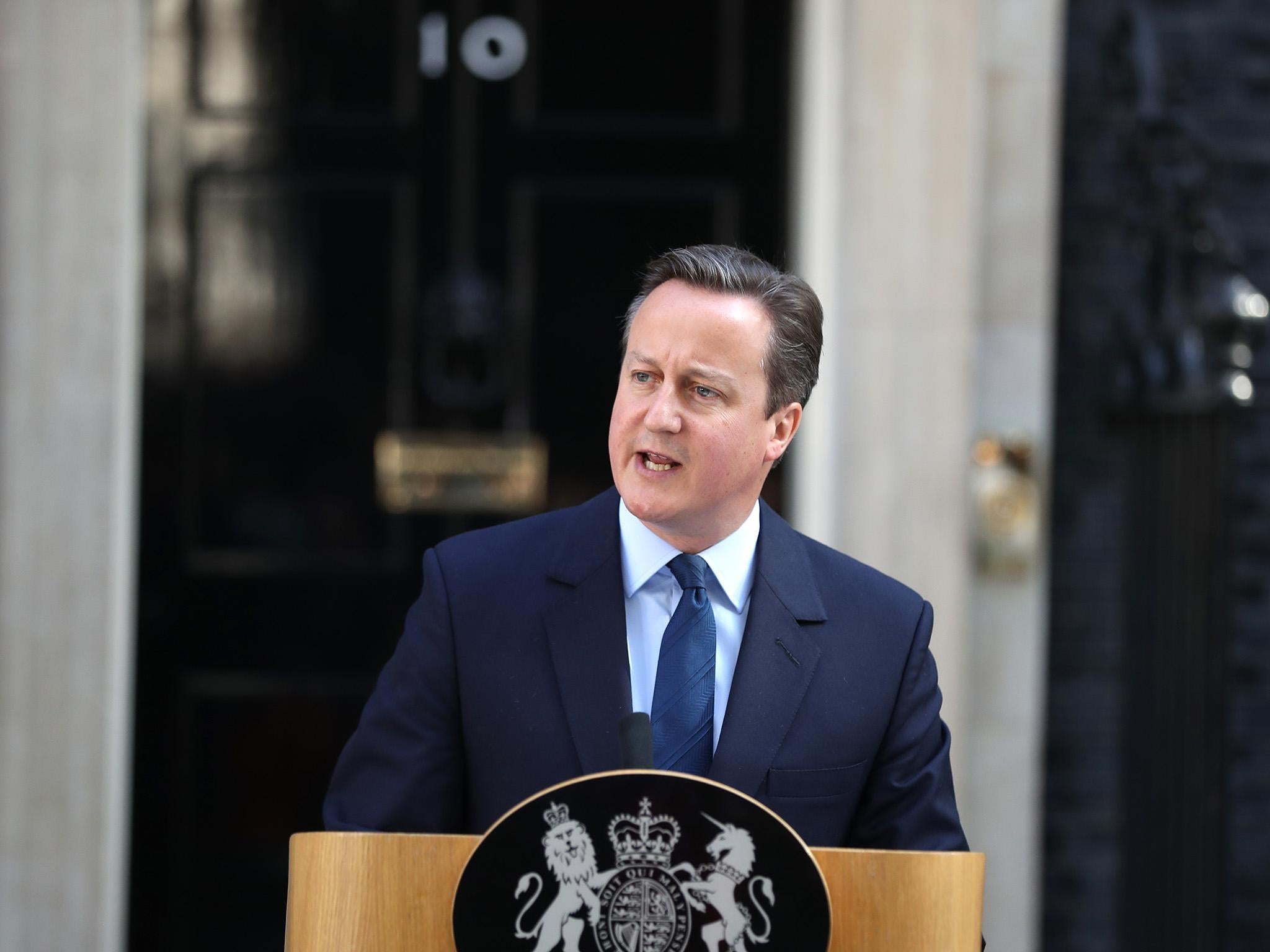Brexit: A result that rocked not only Britain, but the rest of the world too
The Leave victory has given birth to a hydra of economic, political, social and constitutional crisis

At one stage in the rancorous European Union referendum campaign, David Cameron warned a vote for Brexit would be like “putting a bomb” under Britain.
The analogy was dismissed as more scaremongering. Now, a week after that result was announced, the Prime Minister’s words feel like understatement because Brexit has set off an explosion that has rocked not only Britain but also much of the rest of the world. And we are still all being showered by a mighty rain of sediment thrown into the air by the blast.
Here in the UK, the 52 to 48 per cent Leave victory (a result which neither the pollsters, the pundits, nor the financial markets saw coming) has given birth to a hydra of economic, political, social and constitutional crisis.
The pound has plummeted and the economy appears to be heading back, once more, into recession.
The Prime Minister has announced his resignation and both the Conservatives and Labour parties are tearing at their own flesh, creating a black hole of leadership at the heart of our political life.
The country feels like it has been cleaved in half by the referendum result on great dividing lines of old versus young, well-off versus poor, cities versus the country, London versus the rest of England. Racists seem to feel empowered by the result, immigrant communities are fearful.
Perhaps most ominously of all, staunchly pro-European Scotland is agitating, once again, for independence and the Irish question is being asked once more. And so demoralised are United Kingdom unionists and English pro-Europeans by the crushing of their hopes that few appear to have the confidence or the energy to fight back.
Europe is in disarray too, its confused leaders terrified that Brexit has planted the seeds of a fresh existential challenge to the EU, while they are still struggling to cope with the poisonous fallout from the eurozone crash.
The wider world was also caught off-guard by Brexit. Our allies in America are discombobulated, with the US Secretary of State, John Kerry, still talking about the decision of the British people being “walked back”.
China is dismayed. The International Monetary Fund says Brexit is the biggest threat facing the world economy. No, Christine Lagarde was not bluffing during the referendum campaign when she first issued that warning.
Since the result was something of a shock, the world has seemed largely unprepared. Thankfully, it appears the Bank of England Governor Mark Carney has put his mind to ensuring Britain’s economy doesn’t go off a cliff. He hinted this week that an interest rate cut, and further quantitative easing, may be necessary.
That spirit, of pro-actively thinking about the way forward, and enacting the policies through proper leadership, informs this special supplement for The Independent Daily Edition. In the pages that follow, our analysts examine the way forward for Tories, Labour, business, the economy, Europe, British security and the centre-left in this country.
As things stand, of course, there are still more questions than answers.
We have no clarity over what sort of trading arrangement the UK will be seeking with its European partner over the coming years. Only the next Conservative leader, whoever she or he may be, can fill that achingly important space.
Will Britain seek to retain membership of the European single market, which is sure to entail the continuance of free movement of European workers into the UK? That would risk an almighty – and possibly violent - backlash from those forces in British society for whom clamping down on immigration is the prime motivating force?
Or will we seek to cast ourselves off from the world’s largest market place and “take control” of our immigration policy, but at the very real danger of ruining our economy in the process? Will there be a swift general election to legitimise the plan? Can the United Kingdom survive intact through the economic and political storms that are still to come?
The questions are so important, complex and manifold that they scramble the mind. Will Europe unite in the face of the Brexit threat? Or will this UK divorce, as some Brexiteers argue and hope, precipitate the ultimate implosion of this 65-year-old political project? Would something better emerge? Or worse? Could Brexit be merely the opening shot of a kind of international nativist revolt against the uneven economic impact of globalisation, one that could, ultimately, sweep Donald Trump into the White House?
Of course, the future is unknowable. But that shouldn’t stop us planning for it – and plotting the way forward for Brexit Britain.
Join our commenting forum
Join thought-provoking conversations, follow other Independent readers and see their replies
Comments